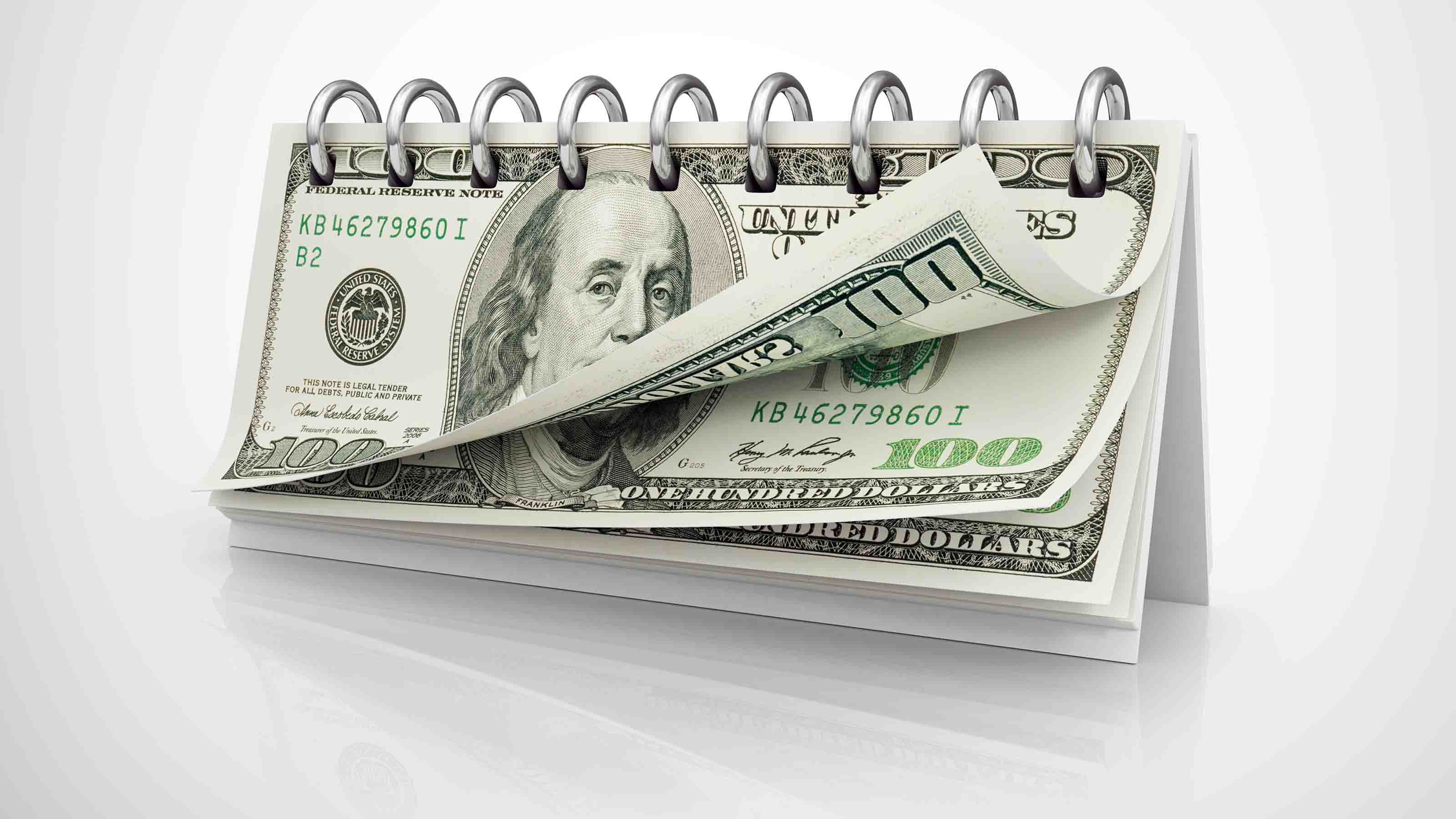Why Fears About Muni Bonds are Unfounded
Investors should focus on the $3.8 trillion of solvent debt instead of on trifling sums that are in default.


Profit and prosper with the best of Kiplinger's advice on investing, taxes, retirement, personal finance and much more. Delivered daily. Enter your email in the box and click Sign Me Up.
You are now subscribed
Your newsletter sign-up was successful
Want to add more newsletters?

Delivered daily
Kiplinger Today
Profit and prosper with the best of Kiplinger's advice on investing, taxes, retirement, personal finance and much more delivered daily. Smart money moves start here.

Sent five days a week
Kiplinger A Step Ahead
Get practical help to make better financial decisions in your everyday life, from spending to savings on top deals.

Delivered daily
Kiplinger Closing Bell
Get today's biggest financial and investing headlines delivered to your inbox every day the U.S. stock market is open.

Sent twice a week
Kiplinger Adviser Intel
Financial pros across the country share best practices and fresh tactics to preserve and grow your wealth.

Delivered weekly
Kiplinger Tax Tips
Trim your federal and state tax bills with practical tax-planning and tax-cutting strategies.

Sent twice a week
Kiplinger Retirement Tips
Your twice-a-week guide to planning and enjoying a financially secure and richly rewarding retirement

Sent bimonthly.
Kiplinger Adviser Angle
Insights for advisers, wealth managers and other financial professionals.

Sent twice a week
Kiplinger Investing Weekly
Your twice-a-week roundup of promising stocks, funds, companies and industries you should consider, ones you should avoid, and why.

Sent weekly for six weeks
Kiplinger Invest for Retirement
Your step-by-step six-part series on how to invest for retirement, from devising a successful strategy to exactly which investments to choose.
Municipal bonds are as resilient an investment as the U.S. has ever devised. Periodically, some fleeting crisis rips 10% or so from the value of muni bonds, which pay interest that is generally exempt from federal income taxes. Then, as sure as the sun rises in the east, prices stabilize and a powerful recovery ensues. Those of us who have chronicled this uniquely American success story for decades know how dumb it is to sell munis short (literally and figuratively).
This time around, the Republican zeal for tax-cutting and a GOP electoral sweep sent muni prices plunging post-election. The idea: Lower tax rates would diminish the relative attractiveness of tax-exempt interest.
But, as always, reality sets in. Political dysfunction means cuts in individual tax rates are becoming unlikely this year—at least, that’s what the smart men and women who follow the bond market believe. Even so, “changes in individual tax rates have negligible impact on demand,” says Ashton Goodfield, a tax-exempt fund manager for Deutsche Bank. Savers who have been content to collect reliable tax-free income for many years have little incentive to sell their bonds and trigger capital gains taxes.
From just $107.88 $24.99 for Kiplinger Personal Finance
Become a smarter, better informed investor. Subscribe from just $107.88 $24.99, plus get up to 4 Special Issues

Sign up for Kiplinger’s Free Newsletters
Profit and prosper with the best of expert advice on investing, taxes, retirement, personal finance and more - straight to your e-mail.
Profit and prosper with the best of expert advice - straight to your e-mail.
Quick comeback. Municipals began to turn around last December, and the rally has continued this year. So far in 2017, munis show total returns that equal or beat those of most high-grade taxable bonds. Moreover, in the first half of 2017, only five of 208 Standard & Poor’s muni indexes were in the red, and three of those involved Puerto Rico and the Virgin Islands, which are serious trouble spots but irrelevant to the big picture.
Investors would do better to focus on the $3.8 trillion of solvent state and local debt in circulation instead of on the trifling sums north of San Juan that are in or threatening to go into default. In addition, many experts, including George Friedlander, of Court Street Group Research, and Duane McAllister, of Baird Funds, point to the continued scarcity of high-quality tax-exempts. Muni bond issuance declined 15.4% in the first quarter of 2017 compared with the first quarter of 2016. Vastly more bonds are maturing or being redeemed before maturity than localities can match with new debt.
Anywhere you look, muni returns are healthy. So far in 2017, the sector leaders among revenue bond issuers are life care (nursing homes and continuing care communities for seniors), up 4.7%; toll roads, up 4.5%; and higher-education facilities, up 4.3%. State by state, the trends are also sound. S&P’s State General Obligation index returned 2.7% in the first half, but GOs of prosperous and high-tax states, such as California, Colorado and New Jersey, gained more than 3%. Despite the run-up in prices, yields (which move in the opposite direction) remain generous. A Merrill Lynch index of munis with 12- to 24-year maturities currently yields 2.8%, equivalent to a taxable yield of 5.0% for someone taxed at the top federal rate.
If you have money to invest, consider buying newly issued school, highway and water authority bonds rated triple-B or better. Shares of closed-end muni bond funds that trade at discounts to net asset value (or right at net asset value) are another option. Among mutual funds, Fidelity Intermediate Municipal Income (symbol FLTMX), a member of the Kiplinger 25, is a solid choice. It yields 1.8%, equivalent to a taxable 3.2% for someone taxed at the top federal rate.
Some commonsense guidelines always prevail. Don’t buy bonds from impoverished cities and counties or anyplace losing population. Debt backed by prisons and grandiose retail-and-entertainment districts is also dicey. Otherwise, try as I might to find cause for concern, I just cannot yet. And I’m not sure that I ever will.
Profit and prosper with the best of Kiplinger's advice on investing, taxes, retirement, personal finance and much more. Delivered daily. Enter your email in the box and click Sign Me Up.

Kosnett is the editor of Kiplinger Investing for Income and writes the "Cash in Hand" column for Kiplinger Personal Finance. He is an income-investing expert who covers bonds, real estate investment trusts, oil and gas income deals, dividend stocks and anything else that pays interest and dividends. He joined Kiplinger in 1981 after six years in newspapers, including the Baltimore Sun. He is a 1976 journalism graduate from the Medill School at Northwestern University and completed an executive program at the Carnegie-Mellon University business school in 1978.
-
 Dow Adds 1,206 Points to Top 50,000: Stock Market Today
Dow Adds 1,206 Points to Top 50,000: Stock Market TodayThe S&P 500 and Nasdaq also had strong finishes to a volatile week, with beaten-down tech stocks outperforming.
-
 Ask the Tax Editor: Federal Income Tax Deductions
Ask the Tax Editor: Federal Income Tax DeductionsAsk the Editor In this week's Ask the Editor Q&A, Joy Taylor answers questions on federal income tax deductions
-
 States With No-Fault Car Insurance Laws (and How No-Fault Car Insurance Works)
States With No-Fault Car Insurance Laws (and How No-Fault Car Insurance Works)A breakdown of the confusing rules around no-fault car insurance in every state where it exists.
-
 The Most Tax-Friendly States for Investing in 2025 (Hint: There Are Two)
The Most Tax-Friendly States for Investing in 2025 (Hint: There Are Two)State Taxes Living in one of these places could lower your 2025 investment taxes — especially if you invest in real estate.
-
 The Final Countdown for Retirees with Investment Income
The Final Countdown for Retirees with Investment IncomeRetirement Tax Don’t assume Social Security withholding is enough. Some retirement income may require a quarterly estimated tax payment by the September 15 deadline.
-
 Why Investors Needn't Worry About U.S. Credit Downgrade
Why Investors Needn't Worry About U.S. Credit DowngradeFitch Ratings The United States saw its credit rating downgraded for just the second time in history, but experts aren't worried about the long-term damage to stocks.
-
 Income-Investing Picks for a Recession
Income-Investing Picks for a RecessionInvesting for Income Some consequences of an economic downturn work to the benefit of fixed-income investors. Here are three fund ideas that fit the bill.
-
 Dogs of the Dow Are 2022's Best in Show
Dogs of the Dow Are 2022's Best in Showdividend stocks Some of the best investments for income investors in a volatile 2022 have come from the Dogs of the Dow.
-
 Bond Values in a Volatile Market
Bond Values in a Volatile MarketInvesting for Income While the market's instability may not be over just yet, the latter half of the year should be less daunting – and possibly more rewarding – for investors.
-
 Should You Buy Bonds Now? What To Consider
Should You Buy Bonds Now? What To Considerbonds The fixed-income market has been turned on its head in recent years, but there are still opportunities for those looking to buy bonds again.
-
 Dividend Dates: A Beginner's Guide
Dividend Dates: A Beginner's Guidedividend stocks Everything you need to know about ex-dividend dates, dividend announcements and other parts of the dividend calendar.